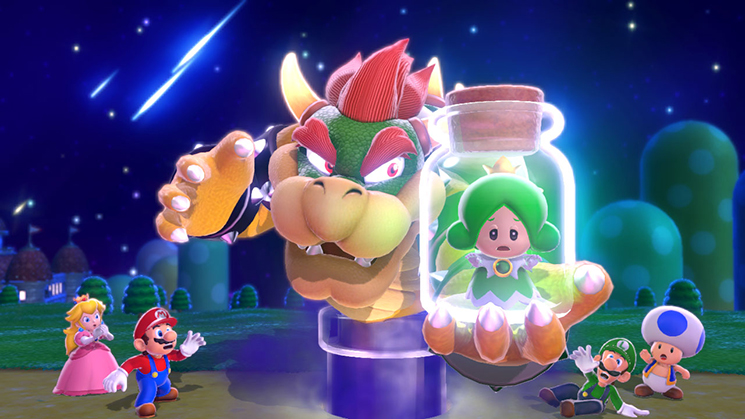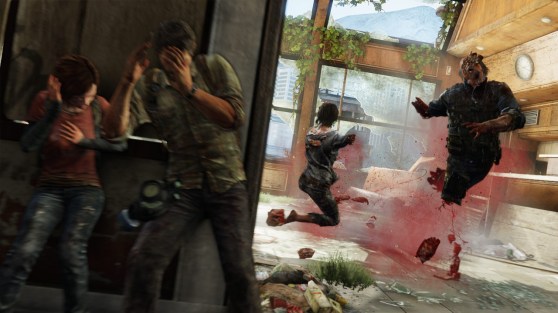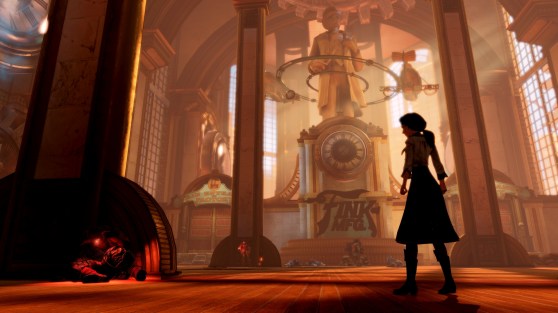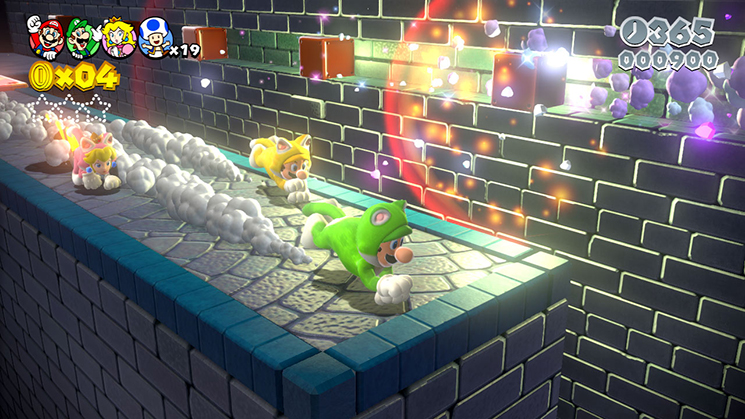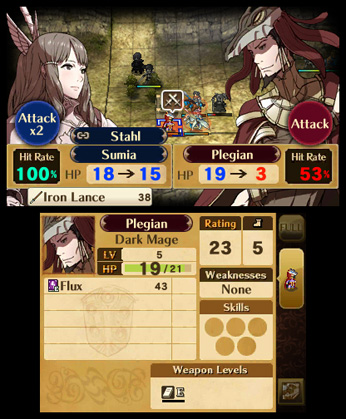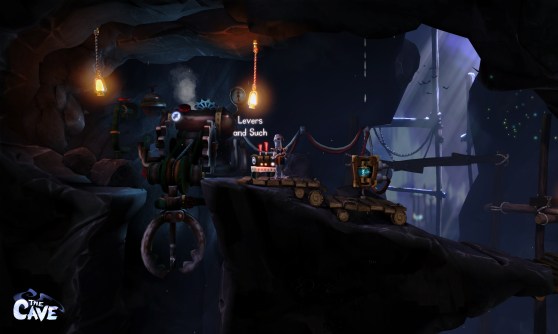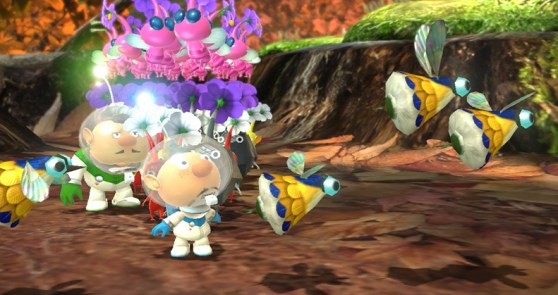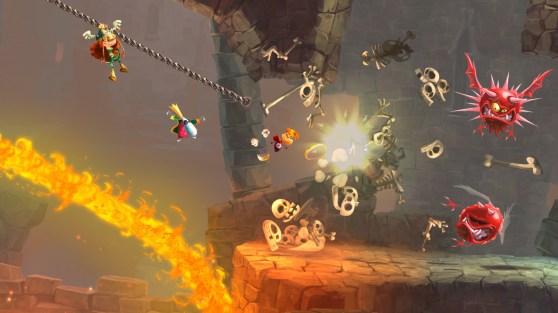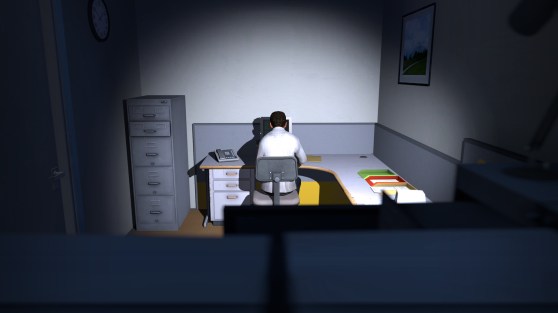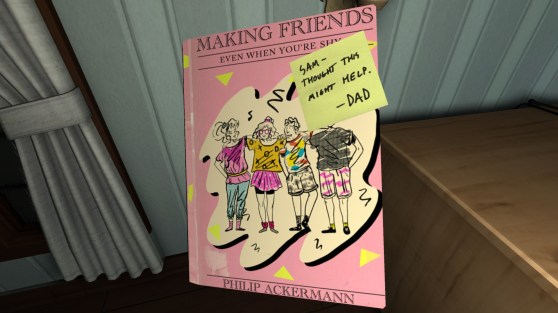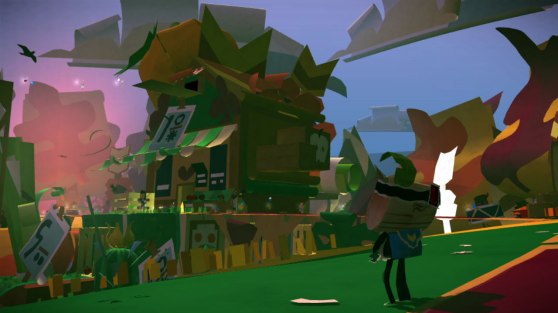Check here for more from GamesBeat’s 12 Days of the Best and Worst of 2013.
The Last of Us. BioShock: Infinite. Tomb Raider. These are a handful of the best-reviewed and highest-rated video games of 2013. But you won’t find all of them — or just those — on this list.
Nope. We’re doing things a little differently here at GamesBeat. We’re running down the staff’s picks for our Games of the Year. That means anything’s fair game — even Aliens: Colonial Marines. (Spoiler: Nobody chose Aliens: Colonial Marines.)
You’ll see our individual selections for 2013’s Game of the Year below, but we had everyone write up different games, sometimes from their runners-up lists (honestly, this was mainly because you don’t need to read five different writers tell you how awesome The Last of Us is).
Share your own GOTYs with us in the comments!
And our official Game of the Year is …
Editor-in-chief Dan “Shoe” Hsu
Game of the Year: The Last of Us (PlayStation 3)
I can’t stop playing Dead Rising 3. Splinter Cell: Blacklist’s multiplayer still gives me the highest highs (and the lowest lows when I lose badly). And it’s my personal mission to get more people to buy the underappreciated Injustice: Gods Among Us.
But The Last of Us is in another category altogether. I lived in its decaying, overrun world. I believed in our (anti?) heroes, Joel and Ellie. The prologue did “zombie outbreak” better than most movies. And goddamn, that was a brilliant non-ending of an ending.
I was so immersed in The Last of Us, I actually got annoyed when it would remind me that it was a video game. In Dead Rising 3, I can totally buy that I can create a flame-spewing, undead-crushing “roller hawg” by welding together a motorcycle and a steamroller in under three seconds. But Joel with a pocketful of cling-clanging, “Here I am, zombies!” gears that he can mysteriously turn into rifle scope? Nope.
But that’s OK because the rest of the experience is just so awesome and unforgettable. Don’t worry about the out-of-place magical gears — The Last of Us is the must-play game of the year.
Runner-up #1: Splinter Cell: Blacklist
Runner-up #2: Dead Rising 3
Lead news writer Dean Takahashi
Game of the Year: The Last of Us
Runner-up #1: BioShock: Infinite (multiplatform)
BioShock: Infinite is an artistic achievement on so many levels. It’s a game where the designer, Ken Levine, had something he wanted to say and a story he wanted to tell. It has beautiful graphics, intriguing characters, a story with a mystery, a lively virtual world, and extreme violence. It is set in 1912, in the fictional floating city of Columbia, at a time when America was beset with an identity crisis.
In Columbia, a battle breaks out between the ultranationalist, racist Founders and the commoner-focused Vox Populi. As the idyllic Columbia crumbles, the main character, Booker DeWitt, is sent into the city to retrieve Elizabeth, a unique girl with special powers who has been imprisoned almost her whole life. As DeWitt tries to extract her, the relationship between them takes many turns. It is a touching and evolving relationship, occasionally thrown into a state of terror as the monstrous Songbird pursues them both.
The ending is truly mind-boggling and so full of meanings and literary references that gamers discussed it for months. It takes you back to the beginning of the game and will put you to work deciphering the earlier scenes in the context of the conclusion. I’ve still got a lot of questions about that ending and no real answers.
After a lot of nonsense that preceded it, this game restored my faith in triple-A games.
Runner-up #2: Grand Theft Auto V
Editor Jason Wilson
Game of the Year: Card Hunter (web)
I miss many things about the ’80s: Saturday-morning cartoons, hood ornaments on luxury cars, and, of course, rappin’ NFL defensive linemen. But the one thing I’ve never stopped pining for from that glorious decade were the classic dungeon crawls of Dungeons & Dragons.
Those dungeon crawls returned this year in Card Hunter, a smart mix of turn-based combat and card-collecting. Card Hunter is special not only because it captures that ol’ D&D nostalgia (it even has 1980s-style module covers for each adventure) but because it pulls off another, even rarer feat: being a free-to-play game that’s satisfying, offers real progression, and provides you a way to get ahead in the single-player campaign without paying a dime.
That “way to get ahead” is multiplayer. It’s a good place to learn tactics and the strengths and weaknesses of character classes, races, and cards. But its victory ladder gives you free loot as you rank up; win specific numbers of matches each day, and you earn treasure chests that dole out rarer and rarer items. So sure, you can buy “pizza” (Card Hunter’s currency) or join its rewards club, but you can just play more of the game — and learn how to be a better player — to get choice loot as well. You can run through player-designed dungeons — or make your own.
And none of it costs a thing.
Runner-up #1: Europa Universalis IV
Runner-up #2: Baldur’s Gate: Enhanced Edition
News reporter Jeff Grubb
Game of the Year: Super Mario 3D World (Wii U)
When a publisher pushes out game after game in a series, it’s very easy for even the best franchises to lose their wonder. Somehow, Nintendo not only avoided that fatigue with Super Mario 3D World but made it one of the year’s most vibrant and fun titles.
3D World is a swirl of original ideas and old nostalgia. It gives you the familiar, like the Tanooki power-up, and the new, like the cat suit. It hits you with a classic song on one stage before showing off an amazing original composition on the next.
It recognizes its roots while tilling new soil from which the company will grow nostalgia for another 30 years.
Most impressively, it makes for an amazing single-player experience on par with Super Mario Galaxy while also functioning brilliantly as a multiplayer title. While 2013 showed us that gaming can continue to grow as a storytelling medium with games like The Last of Us, Gone Home, and Brothers, Nintendo proved that it is still the best at crafting pure gameplay delights.
Runner-up #1: Saints Row IV
Runner-up #2: The Legend of Zelda: A Link Between Worlds
Writer and community manager Mike Minotti
Game of the Year: Fire Emblem: Awakening (3DS)
I’ve always enjoyed Nintendo’s tactical, turn-based fantasy series Fire Emblem, but it always felt like one of Nintendo’s second-tier franchises. You’d never see it given the same production values you’d expect from a Zelda or Mario game. But that wasn’t the case with Fire Emblem: Awakening on the 3DS, which featured beautiful cutscenes, a stunning soundtrack, and some of the best graphics and 3D effects seen on the portable.
Awakening also features some of the most innovative character customization I’ve seen in a role-playing-like game. Not only do you design your own avatar, who then acts as both commander and fighter for your army, but you play matchmaker between all the members of your party, and the resulting marriages can have profound effects on the future warriors you can enlist.
Fire Emblem: Awakening is both beautiful and challenging, and its writing is often just as funny as it is clever. It’s the best entry the series has ever seen, the best game on the 3DS, and the best game of 2013.
Runner-up #1: The Last of Us
Runner-up #2:The Legend of Zelda: A Link Between Worlds
Writer and editor Stephanie Carmichael
Game of the Year: The Cave (multiplatform)
I know what you’re thinking: “Why would you choose some stupid adventure game over big games like Tomb Raider, BioShock: Infinite, et cetera?!” Well, because The Cave isn’t stupid, and I was bummed that it didn’t receive more standout praise for its accomplishments.
Yes, there were glitches. Yes, the multiplayer is kind of tedious. And yes, it doesn’t make sense that there are seven characters instead of six or even nine because you take any three characters with you at once, so your final tour of the titular cave is largely repetitive. But where was the love for the uniquely Double Fine humor, the gorgeous visual style dripping with detail, and the clever puzzles that break free from everything people tend to hate about adventure games?
I’ve played a lot of games in this genre in the past couple years — more than I have my whole life, really. They’re good and bad, but most of the time we’re inclined to rage-quit because the puzzles require some form of outdated logic than never really made sense anyway. And don’t talk to me about inventory management. I am so sick of it and having to combine items without the faintest clue how they could possibly go together.
The Cave eschews those awful tropes, along with the common ambiguity of adventure games. Each area is the perfect size (not too small but not too big that you get lost), so you won’t have to lug objects very far, and each character only holds one at a time — so you’re never bombarded with too much junk. And the puzzles actually make sense even if they stump you at first. At one point, I wondered how to light a mine cart full of bombs when no torches were around. The answer was right in front of me. All I had to do was wheel the cart down toward some lava and let the heat do the work for me. Simple and brilliant.
Runner-up #1: Mario & Luigi: Dream Team
Runner-up #2: BioShock: Infinite
Writer Daniel Crawley
Game of the Year: The Last of Us
Runner-up #1: Grand Theft Auto V
Runner-up #2: Pikmin 3 (Wii U)
Pikmin 3 came out a staggering nine years after the previous installment in Nintendo’s real-time strategy series, but it was sure worth the wait.
Every hour with the game this summer was spent with a smile on my face. Maybe it took me back to a more innocent time in life, when my days were spent finding bugs under rocks and plunging action figures into ponds to look for hidden treasure. Maybe it appealed to the general in me, organizing my troops and sending them into battle, with victories celebrated and deaths mourned. Maybe it was because it was a game I could happily play with my kids, passing the GamePad around and sharing each new, fantastic discovery together.
Most likely it was a combination of all these things that made Pikmin 3 such a special experience this year and turned the Wii U — in our household, at least — into a must-have console.
Writer Stefanie Fogel
Game of the Year: Rayman Legends (multiplatform)
Few franchises can put a big, goofy smile on my face better than Rayman. When publisher Ubisoft decided to make the fifth entry in the series, Rayman Legends, a multiplatform title instead of a Wii U exclusive, I was thrilled to have the chance to spend more time in that game world.
Rayman Legends is a beautifully designed platformer packed with content. It features five distinct worlds full of challenging gameplay that usually culminates in an exciting boss battle. When those levels are completed, there are daily and weekly challenges, an online competitive mode called Kung Foot, and dozens of remastered Rayman Origins levels to unlock. Legends’ musical levels, in particular, are pure rolling-in-kittens happiness. I can’t hear Ram Jam’s “Black Betty” on the radio now without thinking about the game.
In fact, I would hand Ubisoft my money right now if it created a Rayman game that was nothing but musical levels. *coughs* *stares at Ubisoft meaningfully* And I haven’t even mentioned the unlockables yet. There’s an impressive amount of content in Rayman Legends, and all of it is adorably fun and charming.
Runner-up #1: BioShock: Infinite
Runner-up #2: The Stanley Parable
Writer Gavin Greene
Game of the Year: The Stanley Parable (PC)
The Stanley Parable is a game that not only affects you while you play it but will alter your syntax when discussing it. This nonlinear exploration of video game narrative is both innately simple and impossible to accurately describe. It’s an adventure game with no puzzles or combat, over in 10 minutes or after a two-hour spiral of glorious insanity. Looking back at everything from reviews of the game to the forums talking about it, you’ll see gamers of all types trip over themselves in their enamored gushing, trying and failing to adopt the breathless dry wit of the mercurial narrator or his sporadic shifts in tone. Guide Stanley through his abandoned office building yourself, and it’s hard not to see what sent everybody to their thesauruses.
The Stanley Parable gave players a constant drip of haughty intellectualism, and we all devoured it with a new-found appetite. Video games are relatively new to the idea of self-reflexivity and deconstructionism, usually not prone to examinations of their own design outside of snarky meta commentary. But The Stanley Parable used any excuse to shine light on its own behind-the-scenes mechanics. It had an comeback for almost every action the player could undertake, even taking your hand off the mouse and leaving Stanley motionless in a room. Even the achievements are a parody of the idea of gratuitous player reinforcement. But this isn’t just an experience for the game snobs. The constant visual absurdities are enough to draw in anyone who fought against a designer’s forced perspective of how they should progress.
The Stanley Parable takes some of the best parts of the Portal franchise, amps them up until the feedback is screaming out the speakers, and refuses to let you stop laughing. It’s a truly unique adventure and hopefully the start of something new and wonderful.
Runner-up #1: Papers, Please
Runner-up #2: The Last of Us
Writer and editor Jay Henningsen
Game of the Year: Gone Home (PC)
Some shortsighted hardcore gamers have derided Gone Home for its lack of challenge of any sort. Some even claim that it’s not even a game. The Fullbright Company, however, has artfully proven that storytelling and simple, human curiosity can be just as compelling as the carrot-on-a-stick machinery of unlockables and multiplayer ladders.
Before you write off Gone Home as some artsy-fartsy experiment, ask yourself if any other game you’ve ever played elicited a range of emotions such as sorrow, dread, loneliness, apprehension, joy, fright, and anger. What other game lets you explore the intimate details of an entire family in such a way that is almost guaranteed to touch you on some personal level?
Amidst a sea of multiplayer shooters, open-world adventures, and regurgitated sports titles, Gone Home stands out as one of the truly unique experiences of the year — one that I’m not hesitant to recommend to anyone.
Runner-up #1: State of Decay
Runner-up #2: BioShock: Infinite
Writer Evan Killham
Game of the Year: Tearaway (PlayStation Vita)
I know a lot of people are picking Naughty Dog’s grim-fest The Last of Us, and that’s a fine game all around, but I had a problem with it: It wasn’t fun. And it’s not just me; pretty much everyone I know said they could only play it for so long before they had to stop from exhaustion.
And that has a place in art, sure, but in a year that was full of so much cynicism and bleakitude, a game that celebrates fun and childlike innocence was a welcome change. So my pick is Tearaway, a game from the makers of LittleBigPlanet that manages to fix the earlier title’s severe gap between being creative and actually playing the game. Media Molecule went ahead and made the world in a charming papercraft style and then lets players add their own personal flair by doing things like drawing the snowflakes that will fall at one point and making a crown for an embattled Squirrel King.
To play Tearaway is to participate in its world, and I couldn’t put it down because it gave me such a sense of ownership over the setting and little bits that were truly and uniquely my own. I don’t think I’ve ever been less ashamed to be caught playing a “cute” game.
Plus, my squirrel crown was completely awesome.
Runner-up #1: BioShock: Infinite
Runner-up #2: Assassin’s Creed IV
Writer and editor Eduardo Moutinho
Game of the Year: The Last of Us
Runner-up #1: Grand Theft Auto V (multiplatform)
I am one of the few people who felt that Grand Theft Auto IV wasn’t the pinnacle for Rockstar Games’ open-world crime franchise. While I enjoyed the most recent foray into the gritty, New York-inspired streets of Liberty City, I didn’t agree with GTA IV’s overly focused, more intimate direction. I yearned for an expansive world — one that would provide me with a mind-boggling number of ways to cause mayhem.
Grand Theft Auto V gave me that sadistic sandbox.
The game’s San Andreas setting is huge. You can stage some urban ruckus in a tank. Then, you can lose the cops as you drive your way up a mountain. And, just because, you can grab a dirt bike, speed off a cliff, and base-jump your way down to the beach. If that’s not enough, you can hop into a submarine and explore the sea floor — or scuba dive and have an up-close encounter with a coral reef.
And that’s only a fraction of what you can do.
Oh, and did I mention that GTA V’s single-player campaign has three playable protagonists and a meaty, interwoven narrative centered on enormously entertaining heists? Or that the title has a robust online mode that keeps the madness going once you’re done with the solo missions?
GTA V is massive, diverse, crazy, funny, shocking, and surprising. Most importantly, it’s a lot of fun. It’s everything a Grand Theft Auto should be.
That’s why it’s one of my favorite games from 2013.
Runner-up #2: BioShock: Infinite
Writer Giancarlo Valdes
Game of the Year: The Last of Us
Runner-up #1: Tearaway
Runner-up #2: Brothers: A Tale of Two Sons (multiplatform)
One of the most remarkable aspects of Brothers: A Tale of Two Sons — and the reason it bumped off my original No. 3 pick (the excellent shooter Metro: Last Light) — is the ingenious way it uses your controller to tell its story. At first, the unorthodox setup — the left analog stick controls the eldest child while the right moves the youngest — seems like a gimmick. But it quickly becomes integral to the experience as you time the brothers’ movements to solve puzzles and to traverse through the game’s strange but beautiful landscape.
And by the end of the two-to-three hour adventure, Brothers takes another surprising turn: It strips away its fairy-tale-like trappings in favor of something much more profound and intimate. I couldn’t stop thinking about it for days.
VentureBeat's mission is to be a digital town square for technical decision-makers to gain knowledge about transformative enterprise technology and transact. Learn More
